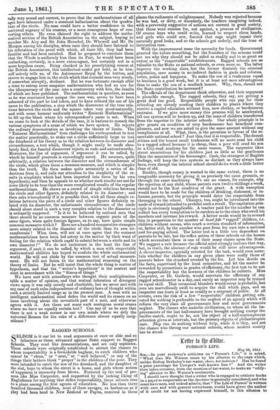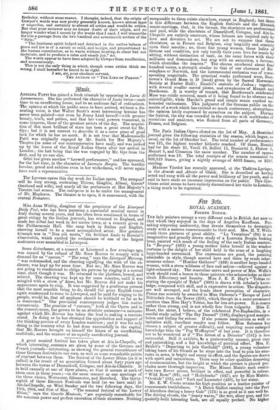titter to dire (abr.
PORSON'S LIFE.
May 28, 1861. Sia,—In your reviewer's criticism on " Porson's Life," it is asked, "What does Mr. Watson mean by his allusion to the cups which, unlike Bishop Berkeley's tar-water, cheer, but inebriate? Has he found a prior parentage for Cowper's well-known line ?" And the writer then takes occasion, from the mention of tar-water, to make an "edify- ing" allusion to Mr. Watson's sentiments. I should have thought that a writer who is engaged to criticize books in a paper so respectable as the Spectator is generally considered, and who must have seen, and indeed admits, that " The Life of Portion" is written with care and with general correctness, would have given the author of it credit for not having expressed himself, in this allusion to Berkeley, without some reason. I thought, indeed, that the origin of Cowper's words was now pretty generally known, known almost lippes et tangoribus, and certainly to almost all critics and would-be critics. But that your reviewer may no longer doubt of their origin, and no longer wonder what I meant by the words that I used, I will transcribe for him a passage from the two hundred and seventeenth section of the
"The luminous spirit lodged and detained in the native balsam of pines and firs is of a nature so mild, and benign, and proportioned to the human constitution, as to warm without heating, to cheer but not inebriate, and to produce a calm and steady joy," elec. The words appear to have been adopted by Cowper from recollection, and unconsciously.
This is not the only thing in which, though some critics think me wrong, I shall hereafter be found to be right.
I am, air, your obedient servant,
THE AUTHOR or " THE LIFE OF 1'0E80E2'































 Previous page
Previous page